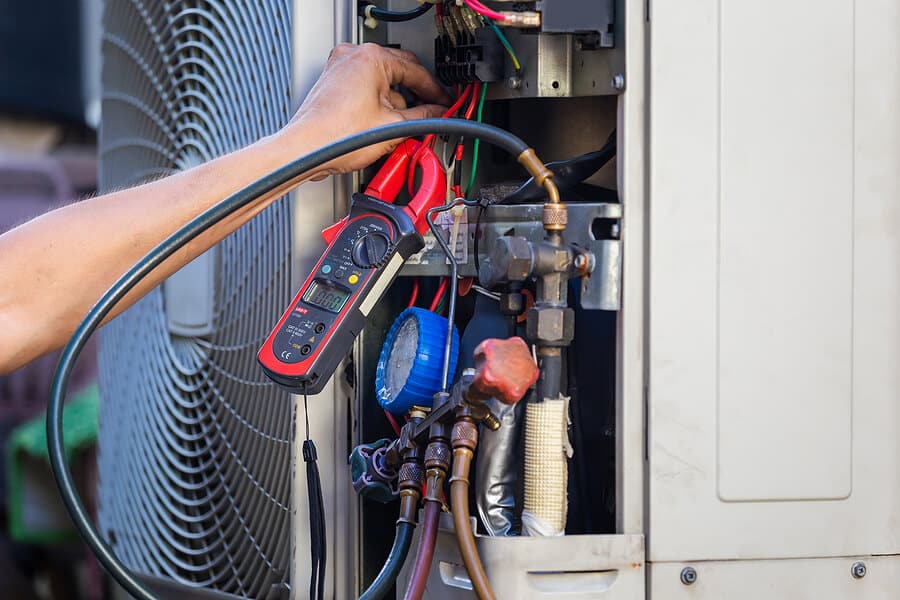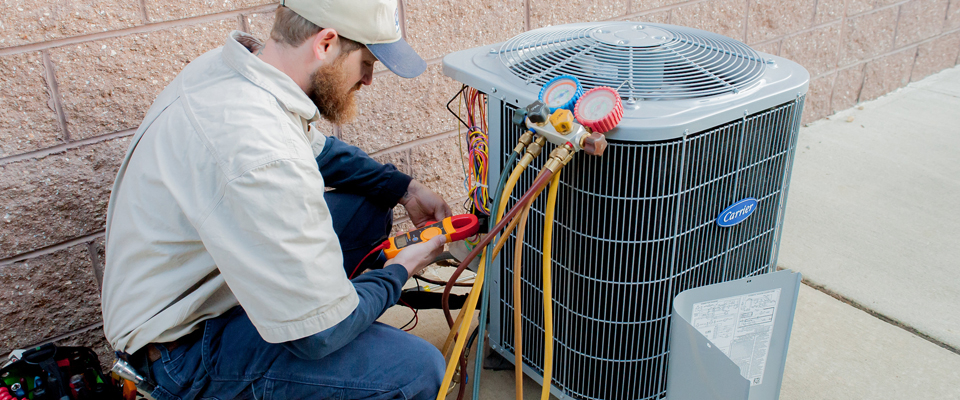Reliable Services from DMAKS HVAC for Your Home's Comfort.
Reliable Services from DMAKS HVAC for Your Home's Comfort.
Blog Article
How to Select the Right Cooling And Heating System for Your Requirements
Picking the ideal A/c system is an important decision that calls for careful consideration of various variables. The myriad of system kinds readily available can complicate this procedure, leading one to wonder which course eventually leads to optimal convenience and efficiency.
Evaluate Your Home Dimension
Examining your home dimension is an essential very first step in selecting the proper a/c system. The size of your home straight affects the cooling and heating capacity required for efficient environment control. A cooling and heating system that is also little will battle to preserve comfortable temperature levels, bring about enhanced energy consumption and endure the device. Conversely, an extra-large system can cause brief biking, poor humidity control, and ineffective procedure.
To accurately assess your home dimension, determine the square footage of each room, thinking about aspects such as ceiling elevation and the layout. Additionally, take into consideration the insulation quality and the number of home windows, as these components impact thermal efficiency. Residences with open flooring strategies may require different system arrangements compared to those with many separated spaces.
Utilizing the Manual J lots estimation approach can supply a more accurate price quote of your HVAC requires. This method accounts for various elements, consisting of local environment, solar gain, and occupancy patterns. By meticulously reviewing these aspects, you can guarantee that your chosen cooling and heating system is properly sized, causing boosted convenience, energy efficiency, and durability of the equipment.
Determine Your Budget Plan
Determining your spending plan is a crucial action in the HVAC system selection procedure, as it establishes the parameters for your options - DMAKS HVAC. An a/c system is a substantial financial investment, and understanding your financial limits will aid limit options that fit within your methods
Begin by examining not only the first acquisition cost however also setup expenses, which can vary substantially depending on the complexity of the project. Additionally, consider ongoing costs such as upkeep, repair services, and energy consumption. A system may appear cost effective originally yet can lead to higher prices with time if it is less efficient.
It is a good idea to allot a backup fund for unforeseen expenditures that might occur throughout setup or preliminary system changes (DMAKS HVAC). Additionally, explore financing options or rebates that might be readily available, as these can reduce the worry of upfront prices
Eventually, having a clear spending plan enables you to engage with a/c specialists better, guaranteeing you obtain tailored suggestions that lines up with your financial objectives and home requirements. By being diligent about your budget, you can make educated decisions that boost convenience without endangering monetary stability.
Evaluate Power Effectiveness
Power efficiency plays a crucial duty in the general efficiency and cost-effectiveness of your heating and cooling system. When picking a system, it is vital to consider its energy efficiency rankings, as these numbers straight influence your utility costs and environmental footprint. Search for systems with a high Seasonal Energy Efficiency Ratio (SEER) for cooling down and a high Annual Fuel Utilization Efficiency (AFUE) score for home heating. Higher scores show greater effectiveness, suggesting even more convenience for much less power usage.
In addition, take into consideration the Power Star certification, which signifies that the system fulfills stringent performance guidelines set by the Epa. Spending in an Energy Star-rated cooling get redirected here and heating system can bring about significant savings over time, specifically in areas with extreme temperature changes.
Another aspect to evaluate is the system's dimension and capability. A large or small unit can cause inadequacy and enhanced energy costs. DMAKS HVAC. Proper sizing, usually established with a Hands-on J lots calculation, ensures that the system runs at ideal effectiveness


Consider Climate and Atmosphere
When selecting a HVAC system, it is critical to consider the neighborhood environment and environmental problems, as these elements substantially influence the system's efficiency and performance. Different regions experience differing temperature extremes, humidity degrees, and seasonal adjustments, every one of which influence home heating and cooling needs.

Moreover, regional ecological variables, such as air high quality and possible irritants, ought to notify your option. Equipments geared up with advanced filtration innovations can help minimize pollutants and supply cleaner air. In addition, think about the energy sources available in your area-- some HVAC systems are extra effective when powered by gas or renewable resource sources.
Ultimately, aligning your heating and cooling system selection with your local climate and ecological factors to consider will certainly bring about improved comfort, enhanced effectiveness, and lower energy prices.
Explore System Kind and Features
As home owners look for to enhance comfort and performance, discovering the various types of HVAC systems and their special features becomes essential. The main kinds of heating and cooling systems include central air, heatpump, ductless mini-split systems, and furnaces. Each system provides distinctive advantages customized to different needs and choices.
Central air systems give uniform cooling throughout a home, making them ideal for bigger rooms. Heatpump function as both home heating and cooling options, making use of electrical power to move warm, which can lead to lower power expenses. Ductless mini-split systems are ending up being increasingly preferred as a result of their adaptability and simplicity of installation, allowing house owners to regulate the temperature level in specific spaces without considerable ductwork.

Verdict
In final thought, choosing the appropriate HVAC system demands cautious consideration of numerous aspects, consisting of home size, spending plan constraints, power effectiveness, regional environment, and anchor available system types. A comprehensive evaluation of these elements makes sure optimum comfort and cost-effectiveness. By following an organized technique, home owners can make educated decisions that align with their details requirements and preferences, inevitably causing enhanced indoor air high quality and energy savings.
Report this page